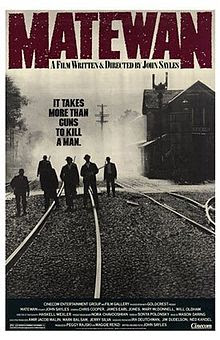The ongoing battle between capital and labor brought to mine John Sayles' strong film, Matewan, from 1987. It got quite a bit of attention and resulted in a book which showed how Sayles approached the Matewan Massacre of 1920.
There aren't too many American films that take the point of view of labor, at least not in recent years, but it was interesting to see that the main characters in The Hunger Games came from a coal mining community similar to one you would find in West Virginia. Seems that Suzanne Collins has a sense of history.

Here's a link to a story appearing in the Atlanta Journal-Constitution this past weekend. It puts the capital vs. labor issue into perspective. Too bad all those business related tax incentives don't actually translate into hiring. SPOILER ALERT: Greed on display.
ReplyDeletehttp://www.ajc.com/news/business/big-georgia-companies-sitting-on-billions-in-cash/nSCX2/
The Obama admin. tried just about every gimmick in the book including payroll tax cuts, but still we see meager job growth. You would think after 2 1/2 years of continued GDP and production growth more companies would be hiring, but it seems most of the expansion plans of the corporations noted in the article are overseas, not in the US.
ReplyDeleteUnions really suffered by not anticipating outsourcing. They should have sought to expand their unions beyond the US and Europe. Naomi Klein noted this in No Logo, saying the garment unions are essentially dead as a result. I guess they figured they still had enough sway in Congress to keep the jobs in house, but it didn't work out that way.
ReplyDelete